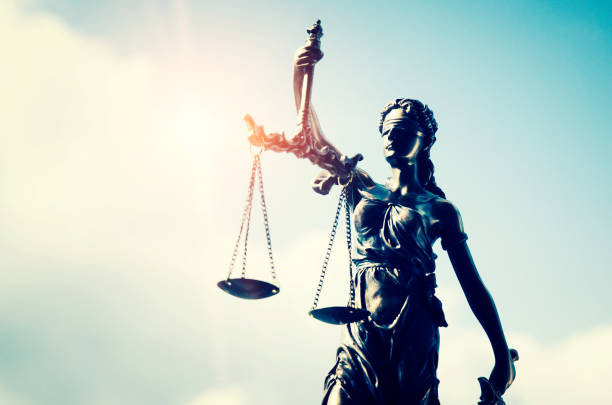 Georgia’s New Hate Crime Legislation
Georgia’s New Hate Crime Legislation
Georgia recently passed a new Hate Crimes Bill. The new legislation imposes additional sentencing on a criminal defendant who commits a crime of hate based upon race, sex, sexual orientation, color, religion, national origin, physical or mental disability. Georgia had passed a hate crime bill back in 2004 that was stuck down as Unconstitutional for being too broad and vague.
The New Hate Crimes Bill increases the punishment for those convicted under the Statute. A criminal defendant convicted under the new law would face an additional six-to-twelve months in prison and a fine up to $5,000 for a variety of misdemeanor offenses. For a felony offense prison sentences are increased to at least two-years in jail.
The new law requires a Bias Crime Report for any crime that appears to be motivated by a hate crime, regardless if a hate crime charge is filed or not.
What is a Hate Crime?
The Department of Justice defines a hate crime as a crime committed against a person based upon their specific characteristics, such as race, gender, or sexual orientation. The word, hate, does not connotate anger, dislike, or rage in this context. The government and the State of Georgia believe that hate crimes affect more than the “victims,” targeted and harm the community. Thus, a criminal offense, plus bias motivation is essentially a hate crime.
Problems with Hate Crimes Legislation in Georgia
Proponents of hate crime legislation insist that it sends a strong message against bias behavior and for an inclusive society of tolerance equality. Others believe that this legislation leads to individuals not seeing themselves as part of society by as part of a group, causing division and unfair legal practices. The effectiveness of hate crime legislation is highly debated. Data suggests that hate crime legislation does not reduce or deter hate crimes. Many people believe that hate crime legislation is Unconstitutional and redundant, motivated by the media and politics, and rarely ever prosecuted.
Constitutionality of Hate Crime Legislation
In Botts v. State, a Georgia couple was charged with assault for beating up two African American men in Atlanta and charged under the law Georgia hate crime law. The couple eventually plead guilty but appealed their hate crime conviction sentence enhancements. Georgia’s hate law at the time required sentence enhancements for anyone convicted of a crime based upon their “bias and prejudice.” The Georgia Supreme Court overturned their convictions, ruling that the “bias and prejudice,” language used in the Statute were overbroad and too vague. They overturned the Georgia Hate Crimes Law at the time unanimously. Other state cases have been overturned for vagueness as well. Hate crimes require intent and determining a Criminal Defendant’s State of Mind in a hate crime case seems almost impossible.
Hate crimes legislation also can violate the First Amendment, Double Jeopardy, and Equal Protection Rights. Double Jeopardy protects against separate prosecutions for the same offense and multiple punishments for the same offense. If a criminal defendant is charged and convicted of battery or harassment, but it is found that the crime was committed to harm someone under a protected status, then the criminal defendant is being punished for the battery or harassment, and the intent element of the crime. Thus, the defendant is being doubly punished for the same crime.
These laws not only punish acts, but they also punish beliefs or opinions. Beliefs and opinions are protected by the First Amendment to the U.S. Constitution. The First Amendment literally protects free speech and opinion.
These laws also seem to violate the 14th Amendments Equal Protection Right. Hate crime law punishes some people while valuing other people more under the law.
Hate crime laws exacerbate divisions in society and may be Unconstitutional. Hate crime laws may cause reverse discrimination and result in greater charges against a white person who assaults a black man over a black man who assaults a white man. This fear is realized even greater when identity politics becomes involved in our criminal justice system. Our criminal justice system is meant to be color blind. Whether it is or not is another discussion.
Tracking Victims Under Georgia’s New Hate Crime Law May Prove Difficult
The Atlanta Journal Constitution posted an article back in July discussing the new law and the difficulty in tracking the enforcement of the law or convictions based upon the law. The AJC article also expounds upon some reasons hate crimes are rarely prosecuted.
Hire an Experienced Criminal Defense Attorney
If you have been charged with a hate crime you need a lawyer. You not only need a lawyer, but you will also need an experienced Georgia criminal defense attorney. I have represented thousands of clients charged with crimes in all criminal and municipal courts for over 25 years. I am knowledgeable in Constitutional Law, criminal procedure, and local procedures in courts throughout Georgia and Atlanta.
Please, if you need help, do not be afraid, reach out for a free consultation. I can walk you through the process and help you in any criminal matter or hate crime charge. I will protect your Rights, freedom, reputation, and finances. Please check out my client reviews and testimonials here. I am attorney Tom Nagel, and I am your Fulton, Gwinnett, Cobb & Dekalb County criminal Lawyer. I am available 24/7 to discuss your case. I have spent thousands of hours in court and represented thousands of clients in many criminal cases. I may always be reached at 404-255-1600.
Please also regularly review my blog on Georgia Criminal and Traffic Law . I regularly update my blog on Constitutional matters related to criminal defense. Here is a recent article on the need for Bail Reform in Georgia https://www.atlantacriminallawyerblog.com/does-georgia-need-bail-reform/.
“I own I am not a friend to a very energetic government. It is always oppressive.”
– Thomas Jefferson, Letter to James Madison, 1787
 Atlanta Criminal Lawyer Blog
Atlanta Criminal Lawyer Blog

